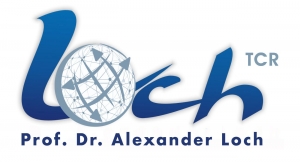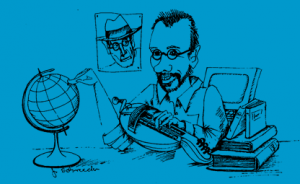CROSS-CULTURAL TRAININGS
For an export-oriented economy, for modern development cooperation and for multicultural coexistence inter-cultural competence is indispensable. In times of increasing global interdependence, it has become a permanent challenge on the one hand and a part of self-concept on the other, affecting almost all professional fields and biographies. Being able to deal with cultural diversity and ”strange/foreign/different” standards of behaviour and thinking is just as much a challenge abroad as it is in domestic professional contexts that are becoming increasingly international. Here are some of my established and current training formats:
- Short (awareness) seminars (1–3 days). Customized seminar design using a database of modifiable critical incidents and video sequences on intercultural situations for managers, development professionals, authorities dealing with migrants, psychotrauma therapists, exchange students and et al.;
- Joint learning journeys (JLJ) for “changing perspectives”. Among others, JLG offer the opportunity to talk to refugees, not just about them. In this premium-format of intercultural trainings, learners become teachers: Together with refugees from Syria, Afghanistan and African countries of origin, the aim is to sharpen one another’s awareness of intercultural challenges, to change perspectives and to try out in real contact how to live with one another.
- Training of trainers. After 20 years of experience in human capacity development, workshop facilitation, team building, leadership training, coaching & training of trainers in more than 25 countries, the engagement with multipliers serves above all for networking and didactic exchange. Ongoing research and teaching about the topic at German and international universities link any ToTs with intercultural experts.
- Tailor made trainings. These generally include HCD analyses and strategy development for international projects as well as the creation of tailored multilingual seminar materials for agile deployment contexts. Through an established network of foreign regional trainers, international measures can be co-constructed and implemented together whenever required.
HUMAN CAPACITY DEVELOPMENT
Developing ”capacities” of individuals, organisations and systems reuqires a precise analysis of (learning) needs, structures and contexts. Thus, In most cases, the right ”HCD mix” is essential. This can include blended learning options for managers, toolbox design, coaching, joint learning journeys (JLJs), expert inputs etc. For ”tailor made” capacity development in developmental contexts, the HCD-team from the Steinbeis Consulting Centers is recommended; for measures in the field of ”Migration & Integration”, the Bonner Institut für Migrationsforschung und Interkulturelles Lernen as well as cooperations with the academy of the German Gesellschaft für Internationale Zusammenarbeit were mutually inspiring. Some examples:
- Employees of the HR-Department of the Office of the President of East Timor expressed the wish to network internationally and to develop a human resources development strategy; together with experts from the German BaKöV, the Office of the President in Berlin and the GIZ, we then designed and implented an intensive workretreat ”capacities to build capacities” (Presidencia 2014)
- Lecturers in Good Governance projects in Eastern Africa complained that their courses didn’t get the necessary attention from participants. The content was well thought out, however the methodology needed to be optimised. State-of-the-art adult education techniques were the key, a series of training of trainers in modern methodology (TOT) the format (InWEnt 2010).
- Following a detailed HCD study in Indonesia (GIZ 2012), we conducted tailor-made management training courses with culturally sensitive case studies on regional forest and climate protection for key actors in the forest education system.
- The same applied to cooperation with civil affairs officers in Haiti (UN, 2011), the development of a capacity building roadmap for the Indonesian Ministry of Finance (MOF, 2012), leadership development in Timor Leste (World Bank 2008), capacity works applications in the Indo-German energy programme (IGEN 2014) and method-qualification for facilitators in Azerbaijan (GIZ: 2014) as well as the qualitative focus-group techniques for migration researchers (BICC: 2019): Initially, ”training needs” are articulated — followed by the challenge to design capacity development measures in such a way that adult learners reflect on previous patterns,work out new options for action and co-construct alternatives with their partners/clients.
- Monitoring scientific studies serve as quality assurance. In cooperation with GIZ and the University of Applied Sciences Ludwigsburg (HVF 2020), for example, human capacity development is also systematically researched in the context of migration governance (HCD4MG).




